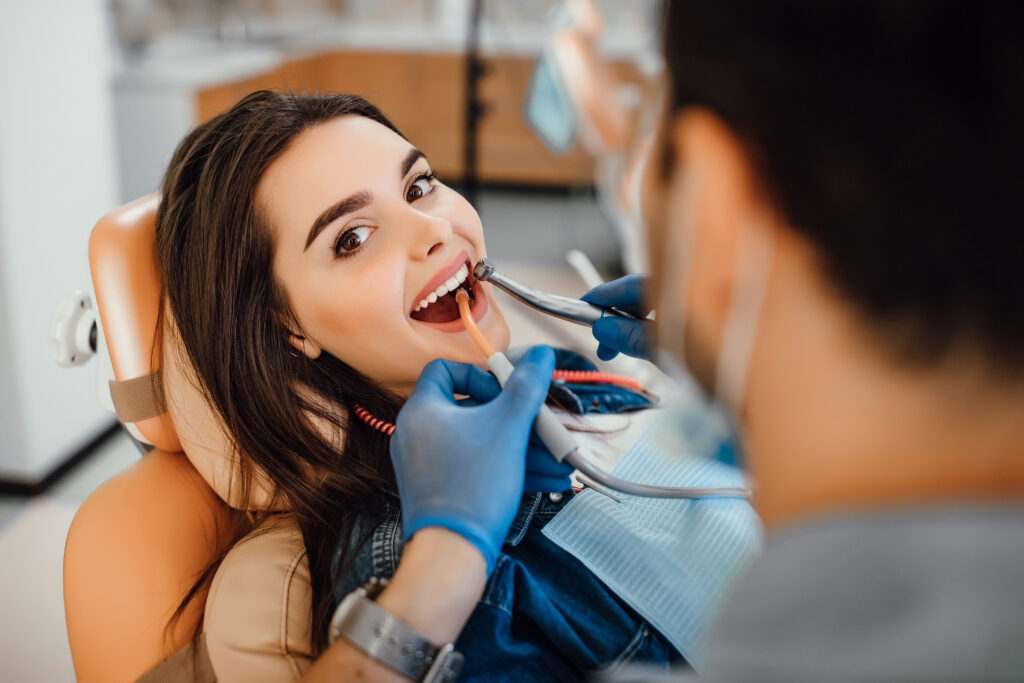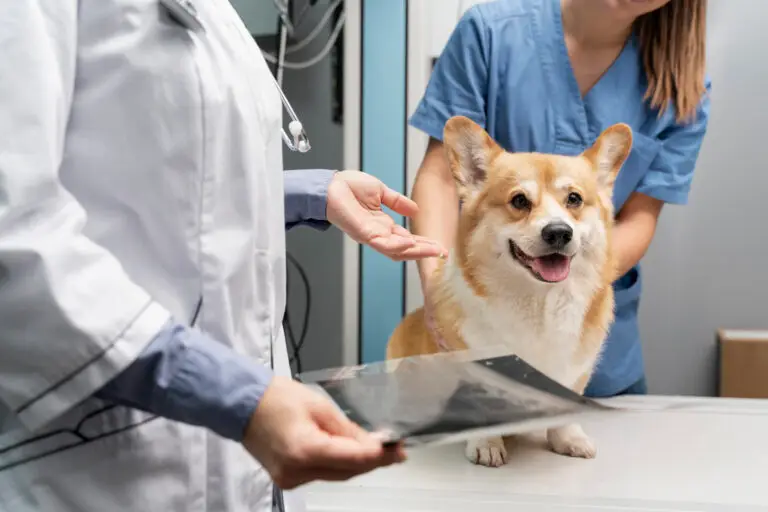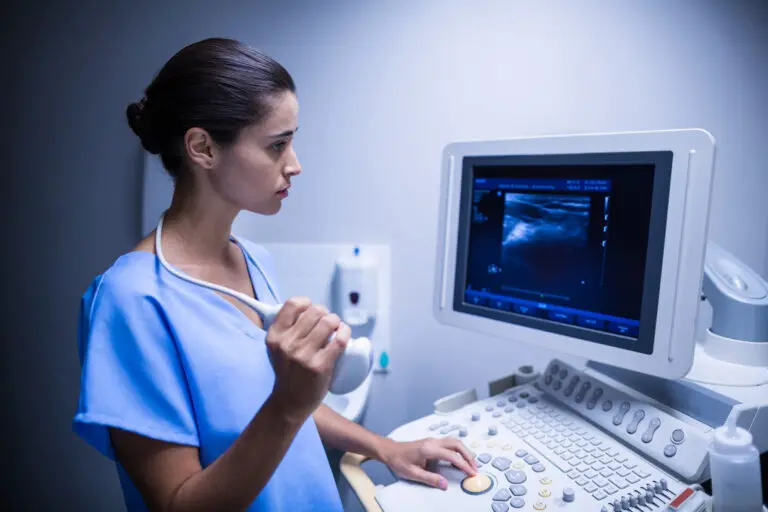Dental Clinic Setup Cost India 2025: Complete Fixed and Variable Cost Breakdown
Table of Contents
Introduction
Dental Clinic Setup Cost India 2025 is both a clinical and financial investment. Whether you’re a new graduate planning your first independent practice or an experienced dentist expanding operations, understanding the complete cost structure is crucial for success.
The total cost involves a mix of fixed and variable expenses, which depend on factors like clinic size, city, equipment quality, and range of services offered.
In this article, we provide a detailed breakdown of the dental clinic setup cost in India for 2025.
We highlight all fixed and recurring costs you should prepare for and explain how to optimize your investment without compromising on care quality.
1. What is the average cost of setting up a dental clinic in India in 2025?
Setting up a dental clinic in India in 2025 can cost anywhere between ₹5 lakhs to ₹20 lakhs.
The final cost depends on many factors, like where you open the clinic, how big the space is, and what type of equipment you choose.
If you’re opening in a small town or Tier 3 city, you might get a good space for lower rent, and basic equipment might be enough to get started.
In such cases, ₹5 to ₹8 lakhs may be enough to cover the basics.
However, in metros or Tier 1 cities like Mumbai, Pune, or Bangalore, the costs rise quickly.
A modern clinic with quality dental chairs, digital X-ray machines, air compressors, autoclaves, and a polished interior may require ₹15 to ₹20 lakhs or even more.
Here’s a rough breakdown:
- Dental Chair & Equipment: ₹3–₹10 lakhs
- Clinic Interior & Furniture: ₹1–₹4 lakhs
- X-ray & Sterilization Units: ₹1–₹3 lakhs
- Software, Billing, and Digital Tools: ₹50,000–₹1 lakh
- Initial Rent Deposit & Utilities: ₹1–₹2 lakhs
This doesn’t include marketing, staff salaries, or working capital.
So, plan accordingly and choose equipment that fits your budget and patient profile.
Starting small and upgrading over time is a smart approach for most new clinics.
2. What are the major components of cost when starting a dental clinic?
When starting a dental clinic, your budget will be spread across several important components.
Some are one-time purchases, while others are recurring monthly costs.
Let’s break them down simply:
- Dental Chair Unit
This is the core of your clinic. A good-quality chair with built-in light, spittoon, and control panel will cost ₹1.5 to ₹5 lakhs, depending on the brand and features. - X-ray Machine and Imaging Tools
You’ll need an intraoral X-ray or digital sensor unit for diagnostics. The cost ranges from ₹50,000 to ₹2 lakhs, depending on the setup. - Autoclave and Sterilization Unit
Sterilization is crucial for hygiene. A good autoclave machine will cost ₹25,000 to ₹1 lakh. Add ultrasonic cleaners or UV cabinets if needed. - Dental Instruments
Basic tools like forceps, scalers, mirrors, probes, and endodontic sets can add up to ₹1 to ₹2 lakhs. This also includes consumables like gloves, masks, and syringes. - Clinic Interiors and Cabinetry
Chairs, reception desk, waiting area, shelves, lighting, and plumbing cost money. Interiors can range from ₹1 to ₹3 lakhs, depending on size and style. - Clinic Rent and Security Deposit
Monthly rent depends on location. In Tier 1 cities, rent could be ₹30,000 to ₹60,000 per month. The initial deposit may be 3–6 months’ rent. - Branding and Signage
Name boards, clinic logo, brochures, and uniforms may cost around ₹30,000 to ₹50,000. These create the first impression. - IT Systems and Software
This includes dental clinic management software, billing systems, a basic website, and maybe even digital appointment tools. Cost can vary between ₹20,000 to ₹1 lakh, depending on features. - Marketing and Launch
You might spend on online listings, local newspaper ads, or opening day activities. Allocate at least ₹10,000 to ₹50,000 for the launch phase.
Each of these components is essential. Prioritize wisely based on your service focus, budget, and expected patient footfall. Starting lean and scaling over time is a smart and safe strategy.
3. How does the cost of setting up a dental clinic vary in metro cities vs Tier 2/3 towns?
The setup cost of a dental clinic can change a lot based on where you’re opening it.
A clinic in a metro city like Mumbai or Bengaluru will cost more than one in a Tier 2 or Tier 3 town like Nashik or Latur.
Let’s look at the key factors that affect this difference:

- Real Estate and Rent
Rent is one of the biggest cost differences. In metro cities, commercial spaces are expensive.
A 500 sq. ft. clinic in a busy area might cost ₹50,000 to ₹1 lakh per month. In a Tier 2 or 3 town, the same space may cost just ₹10,000 to ₹25,000 per month.
- Labor and Staff Salaries
In metros, dental assistants or reception staff will usually expect higher salaries, usually ₹15,000 to ₹25,000 per month.
In smaller towns, you might manage with ₹8,000 to ₹15,000 for similar roles.
- Equipment Leasing vs Buying
Leasing dental equipment is gaining popularity in both metros and small towns. But metro cities may have more vendors offering EMI or rental options.
In Tier 2/3 towns, buying equipment outright is still more common, even if it affects upfront cash flow.
- Clinic Interiors and Setup
Interior designers and construction teams charge more in cities.
A metro setup could need ₹3 to ₹5 lakhs for interiors, while small towns might manage well under ₹1.5 to ₹2 lakhs with local carpenters.
- Marketing and Patient Acquisition
In big cities, you need digital ads, SEO, or local influencers to attract footfall. - This could cost ₹20,000 to ₹50,000 monthly. In Tier 2/3 areas, word of mouth, flyers, and doctor referrals work well, often under ₹10,000.
- Competition and Pricing
Metro clinics face higher competition, so pricing and offers matter.
In smaller towns, fewer clinics mean you can build loyalty faster, but price sensitivity is also higher.
Summary Table: Metro vs Tier 2/3 Clinic Setup Cost
Cost Component | Metro Cities (₹) | Tier 2/3 Towns (₹) |
Monthly Rent | 50,000 – 1,00,000 | 10,000 – 25,000 |
Staff Salaries (Total) | 30,000 – 50,000 | 15,000 – 25,000 |
Equipment (Basic Setup) | 5 – 7 lakhs | 4 – 6 lakhs |
Interiors | 2 – 5 lakhs | 1 – 2 lakhs |
Marketing (per month) | 20,000 – 50,000 | 5,000 – 10,000 |
Total Setup Range | 10 – 20 lakhs | 5 – 10 lakhs |
Bottom line: Metro cities need a higher budget but offer more patient volume and faster scalability.
Tier 2/3 towns have lower setup costs and operational expenses, but patient volume might grow more slowly.
Choose based on your experience, funding, and growth plan.
4. Should you buy or lease dental equipment when starting your clinic?
When you’re starting a new dental clinic, one of the biggest expenses is equipment.
Things like dental chairs, X-ray machines, autoclaves, and compressors don’t come cheap.
So the big question is, should you buy them upfront or lease them over time?
Let’s break it down in simple terms.
Buying Dental Equipment
Pros of Buying:
- Full Ownership: Once you pay, the equipment is yours. You don’t have to worry about rental contracts or returning anything.
- No Monthly Payments: You make a one-time investment and don’t have recurring lease bills.
- Better for the Long-Term: If you’re planning to run the clinic for many years, buying may save money in the long run.
- You Can Sell It: If you upgrade later, you can resell old equipment and recover some money.
Cons of Buying:
- High Upfront Cost: You may need ₹6–10 lakhs or more to fully equip your clinic.
- Cash Flow Pressure: This can block funds that could be used for rent, marketing, or hiring staff.
- Technology Becomes Old: Dental technology evolves quickly. Buying expensive machines means you’re stuck with them, even when better options come later.
Leasing Dental Equipment
Pros of Leasing:
- Low Upfront Cost: You can start your clinic with less capital since you’re not paying the full price at once.
- Monthly Budgeting: Lease payments are predictable and easier to manage month-to-month.
- Access to Latest Tech: Leasing allows you to upgrade to newer machines when your contract ends.
- Tax Benefits: Lease payments are often treated as business expenses, which may reduce taxable income.
Cons of Leasing:
- No Ownership: You don’t own the equipment, so you have no resale value at the end.
- Higher Long-Term Cost: If you lease for a long time, you might end up paying more than the equipment’s price.
- Contract Terms: You’re locked into a contract, and breaking it may cost extra.
Quick Example:
Let’s say a basic dental chair costs ₹2.5 lakhs.
- Buying it means paying ₹2.5 lakhs upfront.
- Leasing it might cost you ₹6,000–₹7,000 per month for 3–4 years, totaling ₹2.6–₹3.2 lakhs.
Final Advice
If you have enough savings or loan support, buying might be better in the long term.
But if you’re starting small or want to reduce your financial stress in the early months, leasing gives you flexibility and helps you start faster.
Many new clinic owners now start by leasing 1–2 core machines and buying basic tools. You can always upgrade later once your clinic grows.
Think about your budget, growth plans, and comfort with monthly payments before deciding.
5. What are some hidden or unexpected costs that new dental clinic owners often overlook?
Starting a dental clinic in India sounds exciting.
You plan your chair, X-ray machine, instruments, and rent.
But once you get going, many small but necessary expenses start popping up.
These are the hidden costs the ones many first-time clinic owners forget to include in their budget.
Let’s go through them one by one in very simple terms.
1. Air Compressor Setup
Most dental chairs need a separate air compressor to power the tools.
A good-quality, noiseless compressor can cost ₹25,000–₹40,000.
If your clinic has more than one chair, you may need a bigger unit or multiple compressors.
2. UPS/Inverter for Power Backup
Power cuts are common in many Indian cities and towns. If your clinic doesn’t have a power backup system, you may have to stop treatments mid-way.
A UPS or inverter for your chair, autoclave, and lights may cost ₹20,000–₹50,000, depending on the load.
3. Biomedical Waste Management
Every dental clinic must follow strict rules for handling waste like used gloves, syringes, and tissues. You will need:
- Color-coded dustbins
- Tie-up with a biomedical waste collection agency
- Monthly waste pickup charges (₹800–₹1,500/month)
This is a legal requirement, and skipping it can lead to fines.
4. Clinic Licenses and Compliance
You’ll need to spend on:
- Clinic registration from the local health authority
- Fire safety compliance (especially in metros)
- Trade license from the municipality
- Pollution control board NOC (in some states)
Each license can cost anywhere between ₹1,000 to ₹10,000, depending on your location.
5. Dental Practice Management Software
In today’s world, you need a software tool to manage appointments, patient records, digital X-rays, and billing.
Good dental clinic software like Practo, DentalDost, or Dentsoftware can cost:
- ₹3,000–₹7,000/month
- Or ₹30,000–₹50,000/year for full features
Many beginners think Excel is enough, but digital software builds long-term patient trust and better follow-ups.
6. Marketing & Branding
Many clinic owners forget to budget for:
- Clinic signboard
- Printed brochures or referral cards
- Social media page design
- Google Business profile setup
Initial cost: ₹5,000–₹15,000 depending on design and printing quality
7. Waiting Area Setup
You may have counted the treatment room cost, but don’t ignore:
- Chairs or sofas for visitors
- TV or water dispenser
- Reception desk
This may cost ₹15,000–₹30,000 or more.
Final Thought
These hidden costs can easily add another ₹1.5–₹3 lakhs to your initial setup.
Planning for them early helps you avoid a cash crunch later.
When budgeting for your clinic, always keep a buffer for these extras.
A good rule is to add 15–20% extra to your base estimate for safety. This way, you can focus on growing your practice without sudden surprises.
6. How can you reduce dental clinic setup costs without compromising on quality?
Starting your own dental clinic is a big step.
But it doesn’t mean you have to spend everything at once. Many new dentists think quality means spending more.
That’s not always true. With smart planning, you can set up your clinic at a lower cost and still give patients top-quality care.
Here’s how you can reduce your dental clinic setup cost while keeping quality high:
1. Buy Second-Hand Equipment from Trusted Sources
Dental chairs, autoclaves, RVG systems, and even compressors are often available second-hand. Many senior dentists sell their equipment when upgrading. You can find:
- Good-quality chairs starting from ₹60,000
- Autoclaves from ₹15,000
- RVG machines around ₹45,000–₹60,000
Make sure:
- You buy from a known dealer or clinic
- You check the service history and warranty (if possible)
- Get the equipment inspected by a technician before buying
2. Start Small and Expand in Phases
You don’t need to buy everything on Day 1. For example:
- Start with 1 dental chair instead of 2
- Buy only basic instruments initially
- Add cosmetic dentistry tools or digital scanners later
This phased approach helps you control expenses and upgrade only when your income grows.
3. Use Starter Packages from Dental Suppliers
Many dental supply companies now offer clinic starter kits or combo offers:
- Chair + compressor + stool + basic instruments
- Equipment + some months of consumables
- Finance or EMI options bundled in
These packages usually save 10–20% compared to buying items separately. Ask multiple vendors for quotes and compare what they offer.
4. Lease Expensive Equipment Instead of Buying
Devices like digital OPG, intraoral scanners, or laser machines are expensive. If you don’t need them daily, consider:
- Leasing them monthly from suppliers
- Sharing equipment with a nearby clinic
- Booking them on-call through dental imaging centers
This way, you offer high-end services without spending big money upfront.
5. Buy Consumables in Bulk or in Bundles
Don’t buy single units of gloves, masks, syringes, or impression materials. Instead:
- Ask your vendor for bulk pricing
- Look for combo deals or starter packs for new clinics
- Partner with other dentists to make a combined order and save on rates
Even small savings per item add up over months.
6. Use Low-Cost Yet Professional Branding
You don’t need to hire an agency to make a brand. Use:
- Free Canva templates for clinic brochures and business cards
- Local print shops for basic signboards
- Google My Business and WhatsApp to promote locally
Patients care more about your treatment, hygiene, and polite service, not fancy logos.
Summary
You can reduce dental clinic setup costs smartly by:
- Buying second-hand equipment
- Using vendor starter packages
- Phasing your purchases
- Leasing costly machines
- Bundling consumables
- Starting simple with branding
Plan wisely. Spend where it matters: patient comfort, hygiene, and your skill. You can always upgrade later as your clinic grows.
7. Is financing or EMI available for dental equipment and setup costs?
Yes, absolutely. If you are a new dentist planning to start your own clinic, you don’t have to pay everything upfront.
There are many financing options available that allow you to spread your setup cost over time.
This makes it easier to start your dental clinic without stressing about money from day one.
Let’s understand the options available in simple words:
1. Vendor Financing and EMI from Equipment Suppliers
Most dental equipment dealers now offer easy monthly installment (EMI) options. When you buy a dental chair or complete setup from them, they usually:
- Partner with a finance company or NBFC
- Ask for basic KYC, PAN, Aadhaar, and sometimes ITR
- Approve loans quickly (within 3–7 days)
- Offer flexible EMI terms from 6 months to 36 months
For example, if a dental chair costs ₹1.2 lakh, you can pay just ₹4,000–₹5,000 per month through EMI.
2. BNPL (Buy Now, Pay Later) Options for Consumables
Some platforms like Biddano, Medikabazaar, or even local vendors offer BNPL options. This means:
- You buy dental consumables now
- Pay the amount after 15, 30, or 60 days
- No interest or minimal charges
This helps manage monthly cash flow, especially when patient flow is unpredictable in the beginning.
3. Medical Equipment Loans from NBFCs
Non-Banking Finance Companies (NBFCs) like Bajaj Finserv, Hero FinCorp, and Tata Capital offer medical professional loans for:
- Buying equipment like RVG, OPG, and an autoclave
- Setting up clinic interiors
- Buying IT and software tools
Key features:
- Loan amount: ₹50,000 to ₹25 lakhs
- No collateral required
- EMI options up to 5 years
- Requires minimal documentation (PAN, Aadhaar, bank statements, and ITRs)
4. CGTMSE-backed Loans for New Clinics
If you are a new dental practitioner planning to open a full clinic, you can also apply under the CGTMSE scheme.
This is a government-backed collateral-free loan scheme that supports MSMEs, including healthcare providers.
Key benefits:
- You can get up to ₹2 crore loan without giving any property or asset as security
- You apply through your regular bank
- You must show a proper business plan and Udyam registration
This is a great option if you want a larger amount to cover full setup, branding, and early working capital.
Summary
Here’s how you can finance your dental clinic setup:
Option Type | Use Case | EMI / Terms |
Vendor Financing | Dental chairs, machines | 6–36 months EMI |
BNPL for Consumables | Gloves, syringes, and daily use items | 15–60 days repayment window |
NBFC Loans | Full setup, interiors, software | ₹50K–₹25L, No collateral, EMI 12–60 months |
CGTMSE Govt Scheme | Full clinic funding | Collateral-free, via bank, up to ₹2 crore |
So yes, dental clinic financing is not only available but also very beginner-friendly now.
Just make sure to compare terms and only borrow what you can repay comfortably.
With proper planning, you can start your practice with confidence and grow it step-by-step.
8. What licenses and registrations are required to start a dental clinic in India?
Starting a dental clinic in India is not just about getting equipment and space.
You also need a few legal registrations and licenses before you can open the doors to your first patient.
These documents are necessary to keep your practice legal, safe, and compliant with healthcare norms.
Let’s go through them one by one in very simple language:
1. DCI / State Dental Council Registration
Before anything else, as a dentist, you must be registered with:
- Dental Council of India (DCI) or
- Your State Dental Council
This registration proves you are qualified to practice dentistry.
You get a unique registration number, which must be displayed in your clinic and used on all prescriptions.
2. Municipal Health Trade License
You need to get a trade license or a clinic establishment license from the local Municipal Corporation or Nagar Palika.
Why is it needed?
- It certifies that your clinic space is suitable for healthcare activity
- Ensures safety standards, hygiene, and fire safety rules are followed
It’s usually valid for 1 year and needs to be renewed annually.
3. Pollution NOC from the State Pollution Control Board
Dental clinics generate biomedical waste like used gloves, syringes, and extracted teeth.
You need a No Objection Certificate (NOC) from your State Pollution Control Board stating that:
- You have tied up with an authorized biomedical waste agency
- You are disposing of waste properly
Most states allow online application for this now.
4. Biomedical Waste Management Tie-up
You must officially tie up with a certified waste management company, which will:
- Collect your biomedical waste daily or weekly
- Provide you with a monthly certificate
- Help you follow the Biomedical Waste Management Rules
Without this, you may face heavy penalties or clinic closure.
5. GST Registration (if applicable)
If your annual turnover crosses ₹20 lakhs, or if you are also selling dental products or medicines, then GST registration is required.
Even if GST is not compulsory at the beginning, it’s good to plan ahead and register if you’re aiming for growth, digital payments, or vendor tie-ups.
Optional:
Clinic Name Board Approval
Some cities require that your clinic name board follow a specific format, size, or language (like English + local language).
This is usually covered in the municipal license.
Summary Checklist
License / Registration | Why It’s Needed |
DCI or State Dental Council | To legally practice dentistry |
Municipal Health Trade License | To operate a healthcare business legally |
Pollution Control NOC | To manage biomedical waste |
Biomedical Waste Tie-up | To follow hygiene and safety norms |
GST Registration | For tax compliance, if turnover crosses ₹20 lakhs |
Getting these licenses may feel overwhelming at first, but many city offices and consultants now provide end-to-end support.
It’s always better to start right than face legal problems later.
Once all your paperwork is in place, you can run your dental clinic with full confidence and peace of mind.
Conclusion: What to Remember Before Starting Your Dental Clinic in India (2025)
Starting a dental clinic in India can be a rewarding venture, but it comes with careful planning and smart budgeting. From our discussion above, here’s what you need to keep in mind:
Setup costs range from ₹5 to ₹20 lakhs, depending on the city, equipment quality, and clinic size.
Core cost components include the dental chair, sterilization systems, diagnostic tools, furniture, branding, and basic infrastructure.
Metro cities like Mumbai and Delhi will cost you more in rent and salaries, while Tier 2/3 towns offer savings but may need stronger marketing to attract patients.
You can reduce initial investment by choosing vendor packages, leasing equipment, or buying good-quality second-hand items.
Hidden costs like biomedical waste tie-ups, UPS backups, and compliance expenses must not be ignored.
Financing support like BNPL, medical loans, or CGTMSE can ease your capital pressure and help you get started faster.
Lastly, licenses such as DCI registration, local health license, biomedical waste tie-up, and GST (if needed) are essential for running your clinic legally and smoothly.
In short, plan your clinic with a balance of cost efficiency and quality. Start lean but be compliant from day one.
If done right, your dental clinic can become a strong, self-sustaining practice in just a few years.





